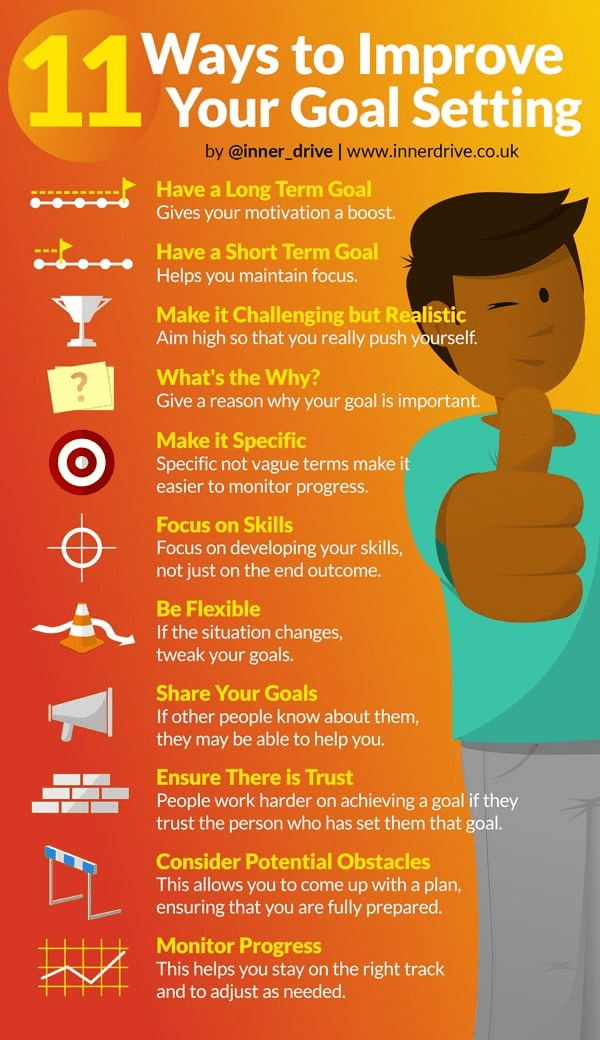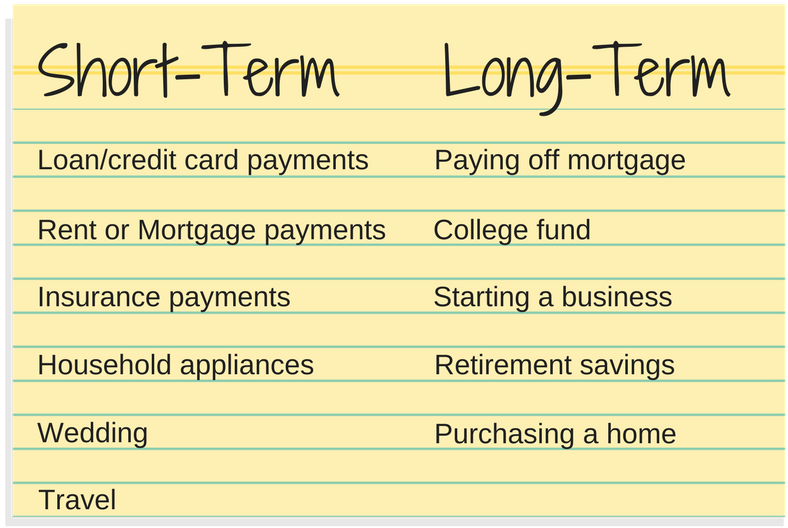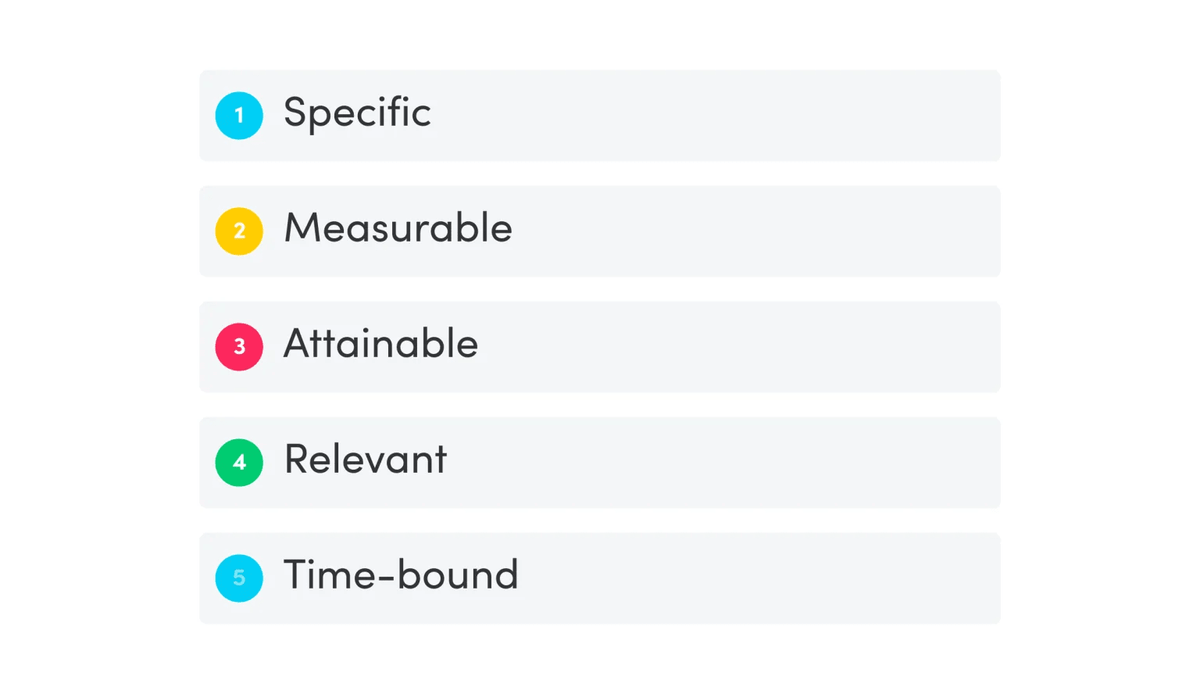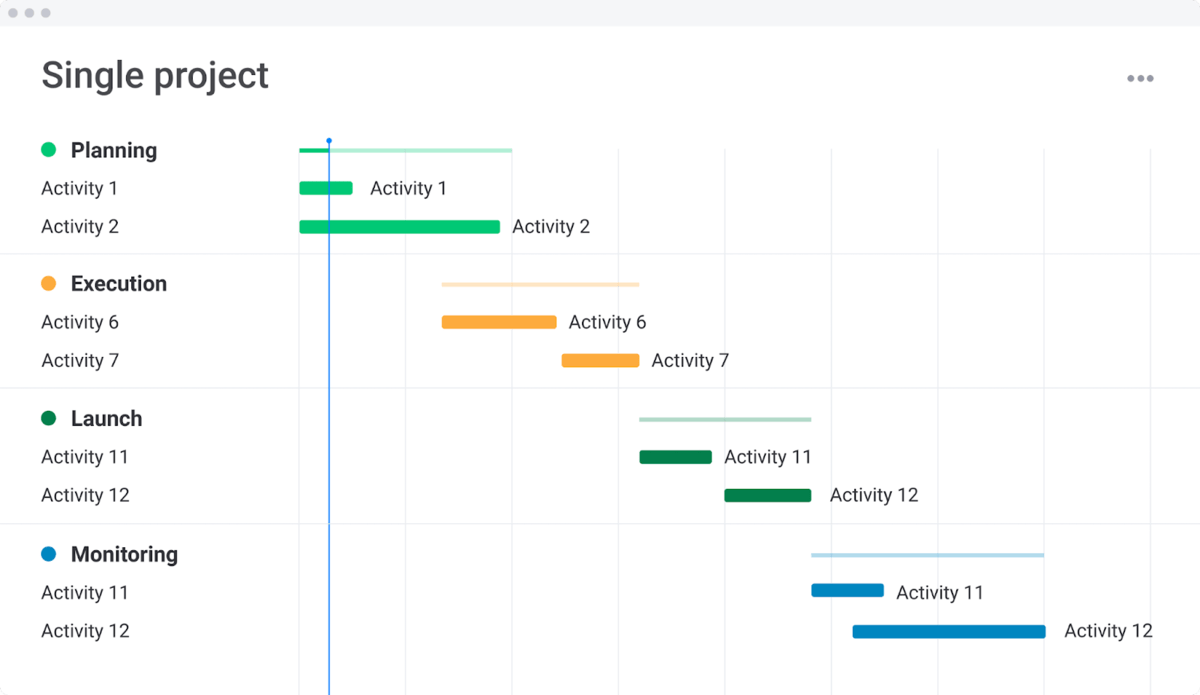You may have some lofty long term goals that you want to achieve. But to get there, you’re going to need some short term goals.
If you don’t know how to set and achieve short term goals, you’ll struggle to complete things in the bigger picture. It’s also hard to stay motivated unless you see progress toward a long-term goal.
Thankfully, it’s easy to achieve short term goals if you know what you’re doing. In this article, we will explain how short term and long term goals differ, plus how to manage short term goals for your business.
Short term goals: what are they?
A short term goal is something that you want to accomplish fairly soon. It might be something you need to get done by the end of the day, or it might be a couple of months from now.
Short term goals help you to make incremental progress toward larger goals. They act as stepping stones and provide measurable action steps that you can take along the way.
A long-term vision is one that’s years away.
There’s no chance that you can get it done tomorrow or next week. These kinds of goals aren’t easy to accomplish, and they also require a lot of planning. To that end, it can be hard to feel like you’re making any real progress toward them.
That’s why creating short term goals is so important. By that, we don’t just mean thinking about them as parts of larger goals, but actually writing them down. People who write down their goals are 20% more successful in accomplishing them.
Breaking a bigger goal into smaller steps helps give a sense of constant progress toward your vision. Short term goals provide more of a step-by-step guide for how to bring your more ambitious goals to completion.
It’s all about finding the right balance.
On the one hand, you don’t want your short term goal setting to be too difficult. But you also don’t want to make them too easy, either. One study showed that 90% of participants performed better when given relevant and challenging goals.
Examples of short term vs. long term goals
If you’re having trouble differentiating between short term and long term goals, here are some examples.
Fitness goals
- Short term: substitute fresh fruit for ice cream today
- Short term: going for a 10-minute walk on your lunch break
- Long-term: lose 30 pounds in the next 6 months
Financial goals
- Short term: save $20 per paycheck
- Long term: save up for a new computer or car
School goals
- Short term: get a good grade on an exam
- Long term: get into your preferred university

Short term goals vs. long term goals: key psychological differences
There are differences in the mindset required when dealing with short term vs. long term goals.
Here are some of those differences.
Amount of strategy required
Long term goals are strategic by their very nature. You use them to plan for how you want things to be in the months and years to come. They can completely shape the path that your business or life takes.
So naturally, a proportionate amount of planning and strategy needs to go into such a big decision. They need to reflect your larger vision or mission.
That’s not to say that short term goals don’t require a bit of strategy as well. But they’re more focused on the present moment and what you need to accomplish currently. So it’s usually easier to see what needs to be done in the next moment.
Short term planning is like putting one foot in front of the other. Long term planning is more like looking at the map to see where you’ll be an hour from now.
Amount of motivation required
Long term or medium term goals can feel very abstract. While they definitely exist, it might not be clear how you’re going to accomplish them ultimately.
Alternatively, you might know exactly what is required, but it might be thousands of hours of work. It’s hard to stay motivated when you can only make 1% progress or less per day toward that larger goal.
In contrast, short term goals tend to be easy ways to get quick wins. Plus, setting goals has been shown to increase employee motivation and organizational commitment.
You can really see the progress that you’re making as you start to check off short term goals. This helps you to stay motivated and take things one step at a time.The sense of accomplishment that completing short term goals provides is essential if you intend to keep going for months or years.
It takes a monumental amount of effort to complete an entire PhD program. It takes a lot less motivation to complete just one essay that’s due this week.
Level of flexibility
Intuitively, it might feel like short term goals offer more flexibility. After all, they’re faster and easier to accomplish.
But the opposite is actually true. Short term goals have stricter deadlines, so they’re actually less flexible than long term goals.
Say your short term goal is to have a report done by the end of the day. Chances are, your boss is going to be less understanding if you ask for an extension. Compare that to a major project, which may have a timeline that gets delayed by weeks.
With long term goals, you need to be more flexible. There are more potential challenges and delays that can arise. Often, they’re outside your control, so you just need to adapt or go along with them.
As you start to complete short term goals, you may find that your long term goals actually change. Through completing short term goals along the way, you may find that the final goal is no longer relevant.
You might need to re-assess and potentially even scrap the entire long term project and start over.
Time required
It’s obvious that long term goals take longer to complete than short term ones.
But the terms short and long are in the eye of the beholder.
The scope of your project will determine what’s considered a short or long term goal.
If you’re assembling a new desk, your short term goal might be getting the legs on. It will take you about 15 minutes. The idea of a weekly goal being short term in this context sounds ridiculous.
But if you’re constructing a new building, a short term goal might be getting all of the electrical wiring put in. This might take days, or even a week or more.
So it’s clear to see that short term goals can take vastly different amounts of time. Generally speaking, though, a short term goal will take a fraction of the time to complete when compared to the larger goal.

Benefits of short term goals
Short term goals set you up for success in a number of ways.
Short term goals create action
It’s easy to put off a long-term goal that doesn’t need to be done for months. You can always get to it tomorrow. It’s easier to let more pressing matters take up your time instead.
Since short term goals have shorter deadlines, they’re much harder to ignore. That creates a sense of urgency and makes you take action.
Short term goals feel more real
Imagine you’re staring at the blueprints for a skyscraper that you’ve been commissioned to build. It’s such a massive project that it’s hard to truly imagine how the end result will look.
But you can start with smaller goals. It’s easier to envision what it will look like to get the foundation poured. Or to put in the beams for just the first floor.
While a big goal can be inspiring, it’s often so huge that it’s difficult to relate to from our current positions. It’s too big of a leap to make.
Short term goals are realistic and much more achievable. They connect us more to the process of getting stuff done and seeing real results from our efforts.
It’s much more effective to work on a series of short term goals that lead to a grander vision.
“Most people overestimate what they can do in one year and underestimate what they can do in 10 years.” — Bill Gates
Short term goals provide positive reinforcement
Accomplishing goals feels nice. It can even give us a bit of a dopamine rush.
Short term goals are smaller and easier to accomplish, so they’re more effective at building confidence and making you feel good about your work.
This creates a positive feedback loop that motivates us to continue working toward larger goals.
You can work on multiple short term goals at once
When you’re working on a large project, it might be your entire job for months or even years.
When looked at as a single goal, it can feel like you’re always working on the same thing.
But you can break it down into short term goals. Then you can work toward completing multiple goals simultaneously.
For example, your long term goal might be to raise a million dollars and expand your business.
Some short term goals for accomplishing that might be:
- Meeting with investors
- Finding ways to increase existing revenue sources
- Applying for government grants or loans
- Arranging an audit of your financial statements
For most people, it feels better to frame it as working on different tasks for a few hours per day instead of working on the same larger project for 8 hours straight.
What makes a good short term goal?
Setting good goals literally alters the structure of your brain. It changes how you perceive things, and it changes your behavior.
More challenging goals that you feel emotionally connected to are more effective than weak goals. Learning how to make good short term goals is key.
No matter whether you’re making short or long term goals, the SMART goal framework can help.
A good short term goal is:
- Specific: you should be able to break it down into just one sentence or even a few words. Any longer and it will start to feel vague or overwhelming.
- Measurable: you need some way to quantify your goal; otherwise, you have no way to track it to see if you’re actually making progress.
- Attainable: being ambitious is great, but setting the bar too high and failing can be demoralizing. You need to be realistic with what you can actually achieve.
- Relevant: if your short term goal isn’t important to you, then it’s a waste of time. It needs to be a part of accomplishing your larger goals. If your goals don’t align, it’s hard to arrive at a specific endpoint.
- Time-based: goals need to have some associated time frame. If you don’t have deadlines, your goals will never get completed.

Want to learn more? Read our complete guide to SMART goals.
Examples of some workplace-specific short term goals
Here are some examples of short term goals in the workplace. They can help to move you toward larger career goals.
Try to think of a short term career goal or 2 that you’d like to try to achieve within the next month.
A few potential examples include:
- Learn to use a new piece of software or technology
- Clean and organize your desk area
- Get to work 5 minutes earlier
- Have a conversation with a new coworker each day
- Apply for a new job opening on the company website
- Earn a new qualification or certificate
- Improve your work-life balance
- Reduce your monthly expenses
- Attend a networking event
Whichever goal you choose, make sure you make it SMART.
For instance, if you want to learn a new technology, include which one, what you’ll do to learn it — such as which online course you will enroll in — and when you intend to complete it.
For even more ideas, check out our article on 35 professional goals to inspire you in 2021

How monday.com can help you to manage your short term business goals
monday.com has a number of templates that can help you to manage and work toward your short term goals.
The single project template helps you bring deadlines, budgets, stakeholders, and more together. You can plan, manage, and track your short term goals, so nothing slips by.
Set milestones and timelines to understand the flow of your progress and see how your short term goals and their deadlines tie in.

We also have lots of unique templates that support different goals you may be interested in.
For instance, the blog planning template is perfect for managing the short term goals associated with running a blog. You can track every detail of the blog planning process and short term goals like blog posts that you need to write each day.
You can brainstorm, schedule, and review all of your upcoming content in one visual workspace.
Automatic reminders ensure you’ll never miss a deadline again. You can also assign work to editors and writers based on their short term capacity.
Start achieving your short term goals
Setting long term goals is great, but you need a series of short term goals along the way to get you to the finish line.
Short term goals provide motivation and help create immediate action. They take less time to complete, which provides much-needed positive feedback to keep you pushing forward on larger projects.
To help you complete all of your short term goals, you’ll need a platform to help you manage them. monday.com’s templates can help to accomplish short term goals in various areas of your business.

